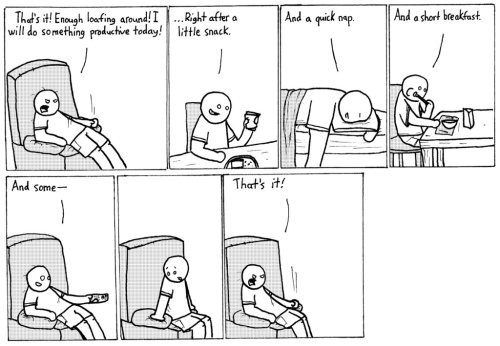
The big cull: if it didn’t fit into the back of the bike…it was sold!
Budgeting for a big move is a prospect often fraught with angst. Whilst I agree it may well be the hardest thing you’ve ever done up until now…it need not be all that difficult. I’ll start by admitting that helping digital nomads determine the actual cost of their move is a futile exercise, considering the endless contributing factors: where do you live now? Where do you want to move to? Are you single or with kids in tow? Are you planning to ship your car and a container full of belongings? Etc etc. You get the gist.
Instead, I think the best option is to share some tried-and-tested tips on the best way you can determine the cost for yourself and (perhaps more importantly) include some insider tips on how to reduce these costs.
After all…I’m going to go out on a limb and assume this may be everyone’s priority 😉
Separate the must-costs from the maybe-costs
Your first priority should be to make a list of all the costs you envisage for your move. Things like flights, above-mentioned container shipping; apartment and/or car rental and so on. Then, think long and hard about which costs are avoidable and which are not. Yes you will have to get yourself there somehow, so flights are (for the majority) unavoidable. Tick.
Apartment rental? Nope, don’t need that yet (more on this later.) Car? Definitely not at first. Double tick.
Now your turn.
Get at least three quotes on all the must-costs
Once you have determined what you must absolutely pay for (if you’re still undecided keep on reading) then best to get quotes as soon as possible. Making the move during low-tourist season in your target country can keep flight, shipping and accommodation costs down for example, so always keep this in mind when doing your research and you could save a small bundle right off the bat.
Sell more…take less
You know how I mentioned getting a quote for shipping all of your personal belongings? Yeah…not. Stop right there.
I know how enticing it is to want to duplicate your life at home once abroad but this does contrast with most of the reasons you decided to make the BIG move in the first place. This isn’t about duplicating, this is about reshaping. If you do want to take ALL of your material possessions and envisage placing them in your new home overseas, you may want to rethink your reasons for moving. It’s a hell of a lot of hassle just to get away from the mother-in-law! Just kidding…
Placing everything in storage and leaving with the bare necessities is a great option, although if you can stomach the idea, I suggest you actually sell off as much as possible before you leave. Not only will this generate more cash (there’s your flights!) but the psychological impact it will have on you may allow you for greater flexibility in your new home-country.
I did in fact leave all my belongings in storage before going travelling. The next time I saw them was three years later when I dashed home to sell it all off: I had spent $2000 a year on storing things I never thought about, nor needed, ever again.
Food for thought? Goodie.
The dreaded housekeeping
One of the hardest decisions you’ll make will be whether or not to keep your house, if you happen not to be renting at home. This is definitely a tough choice to make. Due to my fatalist philosophies I will come right out and advice you to get rid of it; the only thing it will gift you is hours and hours of worry and work; both things you can do without. However, I also understand and accept that this may be easier said than done. Well, I did do it and it was rather easy, but you get my point.
Factoring in the costs of keeping your home at home can be hard-going. Will you rent it out? What about unexpected repairs? Will you leave someone else in charge of managing it? What about the extra expenses: can you factor them into your digital nomad income?
It will soon will become painfully obvious that keeping your home is a huge commitment, one which is hard to maintain if you happen to be on the other side of the planet; and this is just taking practical matters into consideration. I can only imagine how many digital nomads have lost countless nights’ sleep over a major issue with their homes. I don’t envy them one bit.
You’ll need less than you think
This particular credo works for just about everything you can think of. Please excuse the hanging preposition.
First of all, let’s talk high tech gizmos. By and large, I would suggest that whatever you need for one full day of working remotely from Starbucks is all you’ll ever need. I’ve seen digital nomads look like walking computer stores, whilst all I own is a small netbook, an external hard-drive and a couple of memory sticks. All three, by the way, can be purchased in almost every corner of the globe. I keep things stored on Dropbox and continually email my work to myself. Should the inevitable happen (things also go walkabouts in every corner of the globe) I won’t be jumping out of a 4-story window in despair.
Here’s something else to think about. Just because you can’t go down the road to buy milk without hopping in your car, it does not mean you ought to export this habit to your new home-country. Living without a car is not only possible and incredibly refreshing; it is also much easier to do it from the moment you arrive, when you have not yet become accustomed to the luxury of depending on one. Shipping your car overseas can be an awful waste of your heard-earned cash so I suggest you don;t even contemplate it. Likewise, leave the car rental/purchase expense in your new home country for a few months down the track. Unsurprisingly, most digital nomads who live abroad never even make this step, even after many years.
Homes are highly overrated and I do mean this in the nicest possible way. Yes it would be nice to land in Calcutta and head straight for your rental apartment, but the problem with this is that you’ll never really know how good a choice you’ve made until you’ve seen it, smelt it and lived in it. Food and accommodation are life’s basics costs, yet holding off just a wee while on the latter can see your initial costs reduced drastically. First of all, you may want to spend a few weeks scouring suburbs of your intended abode and decide which one suits you best. Secondly, I don’t care what expat blogs/guide-books say, you are the only one who can determine what is good/bad for YOU so you do need to see it all for yourself.
Spending a few weeks in a cheap hostel will not only reduce your initial moving costs but it can prove to be highly beneficial in lots of other ways. I love hostels because they give me the convenience to stay in the heart of a city or town whilst giving me the freedom to suss it all out. You can get a private dorm to yourself/ves and enjoy the convenience of cooking your own meals, thus saving you money on food consumption as well. Most hostels will discount for long-term stays so consider it a bona fide genial option. The great thing about doing this is that you don’t need to yet budget for a rental-apartment deposit within the first few weeks. Give yourself some time to recover financially from the move before forking out even more cash and you’ll be a much happier digital nomad.
Budgeting for your move abroad is a task best tackled with nerves of steel and a sunny disposition; although most seasoned digital nomads will tell you to just chill right out. The whole point of this life-changing decision is to simplify your life and get back to the basics.
May as well start your spring-clean today.
Written by Laura Pattara



